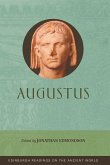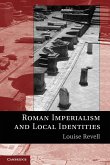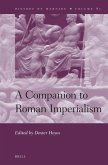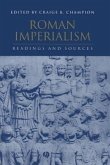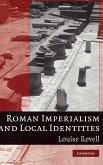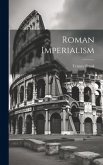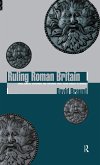Andrew Erskine follows the course and character of Roman expansion during the Republic and Early Empire. He concentrates on the impact of Roman rule on the subject and the effect of empire on imperial power, topics that have long been controversial among modern scholars. Views on Roman imperialism have traditionally been informed by contemporary perceptions of international power relations--one reason students engage with the subject so readily.
Equipped with this book, readers will be offered a reliable and thought-provoking guide to one of the most heated areas of debate in ancient history. Erskine has accomplished the task elegantly and concisely. The book deserves the widest possible readership. Mark Humphries, Professor of Ancient History, Swansea University The transformation of Rome from a small central Italian city-state into the sole Mediterranean superpower has long proved fascinating and controversial. At its height the Roman Empire extended from Britain in the North to Libya in the South and from Spain in the West to Syria in the East. It has impressed not only by its extent but also by its longevity. Andrew Erskine examines the course and nature of Roman expansion, focusing on explanations, ancient and modern, the impact of Roman rule on the subject and the effect of empire on the imperial power. All these topics have created a tremendous amount of discussion among scholars, not least because the study of Roman imperialism has always been informed by contemporary perceptions of international power relations. The book is divided into two halves. Part I treats some of the main issues in modern debates about Roman imperialism, while Part II offers a selection of the most important source material allowing readers to enter these debates themselves. Key features: 1. central issues in modern debates about Roman imperialism are identified and discussed 2. key texts in translation along with key images are gathered and made accessible 3. includes a comprehensive timeline, glossary, further reading and useful website resources Andrew Erskine is Professor of Ancient History at the University of Edinburgh.
Hinweis: Dieser Artikel kann nur an eine deutsche Lieferadresse ausgeliefert werden.
Equipped with this book, readers will be offered a reliable and thought-provoking guide to one of the most heated areas of debate in ancient history. Erskine has accomplished the task elegantly and concisely. The book deserves the widest possible readership. Mark Humphries, Professor of Ancient History, Swansea University The transformation of Rome from a small central Italian city-state into the sole Mediterranean superpower has long proved fascinating and controversial. At its height the Roman Empire extended from Britain in the North to Libya in the South and from Spain in the West to Syria in the East. It has impressed not only by its extent but also by its longevity. Andrew Erskine examines the course and nature of Roman expansion, focusing on explanations, ancient and modern, the impact of Roman rule on the subject and the effect of empire on the imperial power. All these topics have created a tremendous amount of discussion among scholars, not least because the study of Roman imperialism has always been informed by contemporary perceptions of international power relations. The book is divided into two halves. Part I treats some of the main issues in modern debates about Roman imperialism, while Part II offers a selection of the most important source material allowing readers to enter these debates themselves. Key features: 1. central issues in modern debates about Roman imperialism are identified and discussed 2. key texts in translation along with key images are gathered and made accessible 3. includes a comprehensive timeline, glossary, further reading and useful website resources Andrew Erskine is Professor of Ancient History at the University of Edinburgh.
Hinweis: Dieser Artikel kann nur an eine deutsche Lieferadresse ausgeliefert werden.


